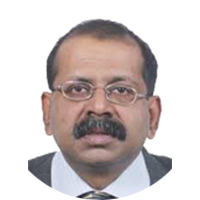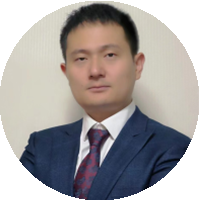

Prof. Sanjeev Sanghi
Indian Institute of Technology Delhi, India
Biography:
Sanjeev Sanghi is Professor and Chair of the Applied Mechanics Department at Indian Institute of Technology Delhi. Having obtained his Bachelor’s degree in Mechanical Engineering from I.I.T. Kanpur, he worked with John Lumley in turbulence modelling for his M.S. from Cornell University. He got his Ph.D. from the Levich Institute of the City College of City University of New York. He has been a recipient of the Ralph Boliagno award for being the most distinguished Teaching assistant at Cornell University and the Excellence in Teaching Award at I.I.T. Delhi. He was Member, Board of Governors, Head Educational Technology and Dean Alumni Affairs and International programmes at IIT Delhi. As Dean Alumni Affairs he set up a Global 1 Billion Dollars Alumni Endowment Fund for IIT Delhi. Currently he is the Head of Applied Mechanics Department at IIT Delhi, where he has spearheaded a new B. Tech. programme in Engineering and Computational Mechanics.He is recognized globally for work on Proper Orthogonal Decomposition (POD), Chaos and Low Dimensional Modelling, Development of New Discretization Schemes in Computational Fluid Dynamics and Modelling of Turbulent Flows. He has applied POD to near wall turbulent flows, rotating flows with natural convection and flows in a square duct. His work on outflow boundary condition for unsteady flows in open domains for incompressible flows demonstrates a novel way to reduce domain size in open flows. He has also developed a new upwinding scheme for compressible flows which is more efficient than the existing schemes. Through a series of works, he has established the phenomena of supression of turbulence with an increase in heat transfer for configurations like channel flow and rotating flows in confined cavities. He has been Invited to deliver lecture on these topics in more than 30 universities in Asia, Europe, Africa, USA, South America and Australia.He is acclaimed to be one of the best teachers at IIT Delhi and has won distinguished teaching awards from IIT Delhi, Cornell University and C.V. Kapur Foundation. He has co-authored the recent version of Beer and Johnston texts on Vector Mechanics and Mechanics of Materials. In 2008, he helped set up a collaborative distance education M. Tech. with Addis Ababa University, Ethiopia with transmission of classes taught by Professors at IIT Delhi to Ethiopia by video conferencing. He was invited as a visiting professor to University of Sussex, UK in 2007-2008. He has held several administrative positions at IIT Delhi including Member, Board of Governors, Head, Educational Technology Centre. Co-ordinator, QIP and CEP, Chairman, Faculty Forum and Convenor for the interdisciplinary group on Transportation Research, TRIPP.

Prof. Liang Yu
Northwestern Polytechnical University, China
Biography:
Prof. Liang Yu has published nearly 200 papers in the field of "Acoustic Perception and Intelligent Information Processing of Mechanical Equipment", including more than 70 papers as the first/corresponding author in international authoritative SCI journals such as MSSP, JSV, and TIM. He has won 2 provincial and ministerial awards (the first prize of Shanghai Science and Technology Invention, the second prize of China Machinery Industry Science and Technology Award for Scientific and Technological Progress), 3 awards from the college and department, 7 conference outstanding paper awards, 1 outstanding reviewer award, and edited and published 2 special issue collections. He is committed to promoting the research direction of "Acoustic Perception and Intelligent Information Processing of Mechanical Equipment", developing advanced acoustic measurement, fault diagnosis and intelligent signal processing methods for mechanical equipment, and forming a series of representative theories and methods. The research areas mainly involve: 1. Vibration and acoustics of aviation mechanical equipment; 2. Material testing and diagnosis technology under multi-field coupling service conditions; 3. Mechanical equipment fault diagnosis: multi-physics field measurement, digital twin; 4. Advanced instruments and testing technology; 5. Artificial intelligence and signal processing.